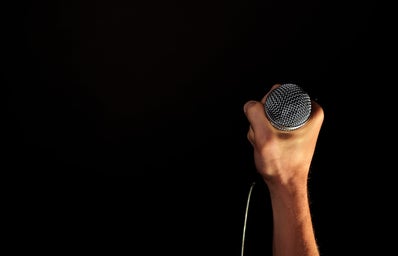Last month, the Court of Justice of São Paulo ordered the exclusion of the stand-up “Disturbador“, by comedian Léo Lins, from YouTube. In the video, Léo Lins, who is already known for controversial jokes, made jokes involving minority groups, slavery, elderly people, and disabilities, among other topics. The case reverberated on social networks and raised a question: what is the limit of humor?
According to the French philosopher Henri-Louis Bergson in his work “Laughter: essay on the Meaning of Comicity”, laughter has a social function. He also points out that men only laugh at their fellow man, never at nature or the animal. A dog, for example, can make a man laugh when it obeys or subverts some will, plan, or expectation of this man. Laughter is a force of intelligence and a social phenomenon, which takes place among men.
Léo Lins, one of Brazil’s most famous comedians, has already stated on his networks that he believes that humor should have no limits and that the purpose of a joke is to make a person laugh. For him, this objective is regardless of whether the joke is offensive or has a prejudiced nature, as a comedy show should not work with this limit.
Society has changed, but what about humor?
It is believed that a few years ago there was a greater tolerance for humor in Brazil, but that has changed. Over the years, other comedians like Rafinha Bastos and Danilo Gentili have also faced lawsuits for controversial speeches in their jokes. The Brazilian Constitution determines freedom of expression and opinion, which is argued by these comedians. However, it also states that people’s privacy, honor, and image are inviolable.
In addition to what the Constitution establishes, there was a strengthening of the debate on the limits of humor. This debate comes mainly from the interpretation that the humor discourse has an exacerbated freedom and often takes advantage of this freedom in the implication of prejudiced themes against groups that are already historically marginalized.
Thus, society began to question how a speech that would be considered racist or sexist, for example, within the context of everyday life, can be accepted in a comedy show. Despite that, many who question these limits of humor are labeled as “politically correct” and accused of censorship.
The other side of the joke
The French philosopher Bergson indicates that “the greatest enemy of laughter is emotion”, so it is important for a humorist to develop at least a momentary insensitivity towards his target of humor. In the master’s thesis “Gender, laughter and Violence: a discursive look at Danilo Gentili’s Humor“, the author Bruna Vitória Tejada brings some relevant perspectives that dialogue with this. According to her thesis, Hobbes states that we never laugh when a joke erupts on us or on friends whose dishonor strikes us. Furthermore, Mateus Pranzetti Paul Gruda, a doctor in Psychology, indicates that this momentary insensitivity theorized by Bergson can lead to a degree of indifference towards the other, who is the object of a joke, which dehumanizes him, and laughter is given as a permanent sign of superiority.
In this sense, the author of the master’s thesis describes that in the Brazilian social formation, humor was incorporated and naturalized as a joke and a speech without the effect of truths. However, she claims that the joke reproduces and reinforces relations of oppression and violence. According to the author, humorous speech is often overlooked, but it is a very efficient way to demarcate an idea. This ability even caused it to be censored during the military period, as he managed to circumvent censorship efficiently. Finally, it is worth mentioning an article by another researcher, Sandra Leal de Melo Dahia, on the role of humor in the expression of racism in Brazil. The author states that jocular discourse is one of the peculiar ways in which Brazilians resolve their identity conflicts: it is a way of “letting out their latent racism, circumventing censorship and critical reflection on its content and on the scope of symbolic satisfaction that laughter provides, at the same time that it does not compromise a non-racist self-preservation”, is how she ponders.
————————–
The article above was edited by Clarissa Palácio.
Liked this type of content? Check Her Campus Casper Líbero home page for more!


